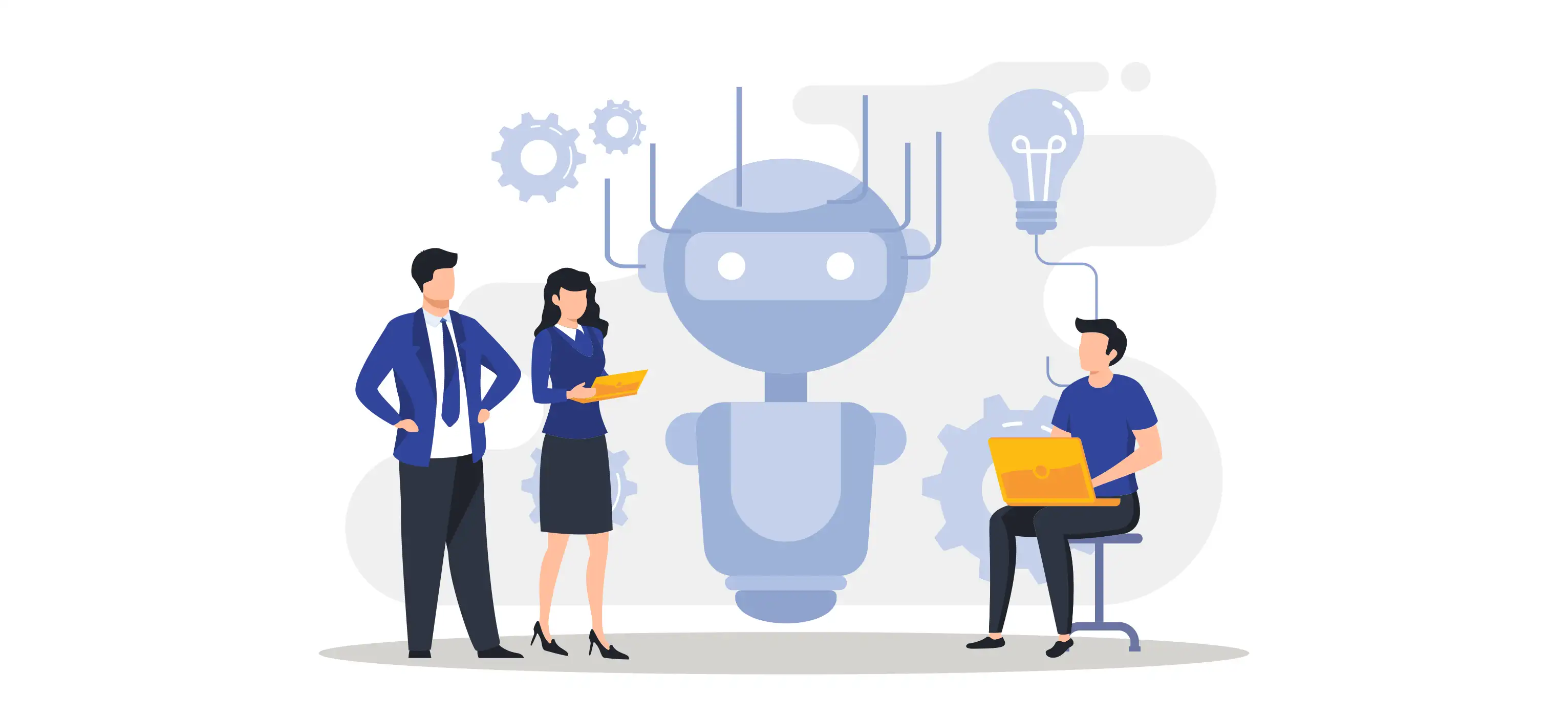 Maninder Kaur
Mar 19, 2025
Maninder Kaur
Mar 19, 2025

The rapid rise of artificial intelligence (AI) is revolutionizing industries, and human resources (HR) is at the forefront of this transformation. Today, companies leverage AI to streamline HR operations, enhance employee experiences, and optimize decision-making. As AI-driven HR solutions become the norm, you must adapt, ensuring that technology enhances human potential rather than replacing it. The best way to gain AI skills in Human Resource Management is to take HR courses. This will help you stay updated on industry trends and use AI effectively.
Now, let’s take a look at how AI is the future of human resources and how AI is Revolutionizing HR Processes
HR has traditionally focused on interviews and recruitment, employee engagement, performance management, and compliance. However, AI is reshaping these functions by automating repetitive tasks, analyzing vast datasets, and providing predictive insights. This shift enables HR professionals to concentrate on strategic initiatives, fostering a more dynamic and responsive workforce. For professionals exploring the best careers for human resource management professionals, AI expertise is becoming an essential competency.
Here are some ways in which AI is transforming HR processes:
One of the most significant changes AI brings to HR is in talent acquisition. Hiring processes that previously took weeks can now be completed in a fraction of the time. AI-powered resume screening tools efficiently identify the best candidates, reducing human bias and improving hiring efficiency. AI-driven chatbots engage with applicants, answering their questions and scheduling interviews, leading to a seamless candidate experience. Additionally, predictive analytics help hiring managers assess a candidate’s potential success in a role, optimizing the selection process. A Harvard Business Review study revealed that AI recruitment tools can reduce hiring bias by 30% and enhance hiring efficiency by 40%.
For those aiming to excel in HR, one of the best ways to become a successful HR professional includes staying updated on AI-driven recruitment trends.
AI is also transforming the way organizations engage with their employees. Personalized learning and development programs use AI to assess employee skills and recommend tailored training plans, helping them grow professionally. AI-driven sentiment analysis enables HR teams to understand employee satisfaction levels by analyzing feedback from surveys and internal communications. Furthermore, AI-powered virtual assistants provide instant responses to HR-related queries, improving overall workplace efficiency.
According to a McKinsey report, companies using AI to enhance employee experience see a 20% boost in productivity and a 25% reduction in employee turnover. As a result, acquiring top essential human resource management skills, such as AI analytics and digital HR tools, is critical for modern HR professionals.
Performance management is evolving with AI-powered tools that offer real-time feedback mechanisms, allowing employees to receive continuous performance insights. AI eliminates bias in performance evaluations by focusing solely on data-driven assessments. Additionally, predictive analytics help HR professionals identify employees at risk of leaving the company, enabling them to take proactive retention measures. Research from Gartner suggests that organizations using AI- driven performance analytics experience a 35% increase in employee engagement and retention.
AI plays a vital role in promoting diversity and inclusion in the workplace. Blind screening techniques ensure fair candidate evaluation by removing personal identifiers from resumes. AI also analyzes job descriptions to detect and eliminate biased language, fostering a more inclusive hiring process. Furthermore, AI-driven compensation analysis helps organizations address wage gaps and implement fair pay practices.
According to the MIT Sloan Management Review, companies leveraging AI for DEI initiatives have seen a 15% increase in workforce diversity over three years. For professionals exploring job roles and the salary outlook of human resource professionals, expertise in AI-driven DEI strategies can provide a career advantage.
HR analytics has become more data-driven with AI, allowing organizations to make smarter workforce decisions. AI predicts staffing needs based on business operations, trends, and market conditions, ensuring optimal workforce planning. Additionally, AI analyses employee behaviour to assess well-being and recommend wellness programs, improving overall workplace satisfaction. With AI-driven insights, HR teams can craft data-backed policies that enhance efficiency and Compliance.
So if you are interested in advancing your HR analytical skills and moving into more strategic roles, then joining an HR Analytics Course will be a good choice!
Despite its many advantages, integrating AI into HR comes with challenges. Data privacy is a major concern, as companies must protect sensitive employee information. Additionally, AI models must be continuously monitored to prevent algorithmic biases that could impact hiring and performance evaluations. Striking a balance between automation and the human touch is also crucial, ensuring that AI enhances rather than replaces human interactions. A study by PwC found that while 75% of HR leaders recognize the importance of ethical AI use, only 25% have formal AI governance policies in place.
As AI continues to evolve, HR professionals must embrace digital transformation while maintaining ethical standards. The future of HR lies in a synergy between AI-driven efficiency and human empathy. By implementing AI responsibly, companies can create an innovative, inclusive, and high-performing workforce. Businesses that strategically integrate AI into HR processes will gain a competitive edge, improving recruitment, employee engagement, and overall organizational success.
AI is not here to replace HR but to redefine its role. The transition to AI-powered HR requires upskilling, change management, and a strategic vision. By integrating AI thoughtfully, HR teams can unlock new possibilities, ensuring that organizations remain competitive in an ever-evolving digital landscape. With AI revolutionizing HR, companies that strategically implement these technologies will not only improve efficiency but also create a more engaged and future-ready workforce. For organizations looking to stay ahead, embracing AI in HR is no longer optional—it is the future of workforce management. If you’re looking to be part of this transformation, explore HR Courses like CHRP and CHRM that equip you with the skills to thrive in AI-powered workplaces and take your career to new heights.

Maninder Kaur is a seasoned Business Management and Soft Skills Trainer with over seven years of experience. Her area of expertise includes business communication, English Language training, interactive learning, student progress analysis, and corporate training. She specializes in IELTS and PTE preparation and excels in enhancing students' business communication and management skills.
Maninder Kaur is certified by Pearson and the British Council and is adept at training diverse groups and tailoring linguistic strategies to individual needs. She has successfully conducted corporate training sessions for esteemed organizations, including the Ministry of Education (UAE), Dolphin Energy, and Sanad Aviation. With a strong foundation in business writing and effective communication techniques, Ms. Kaur is committed to empowering professionals and students to achieve their career aspirations.